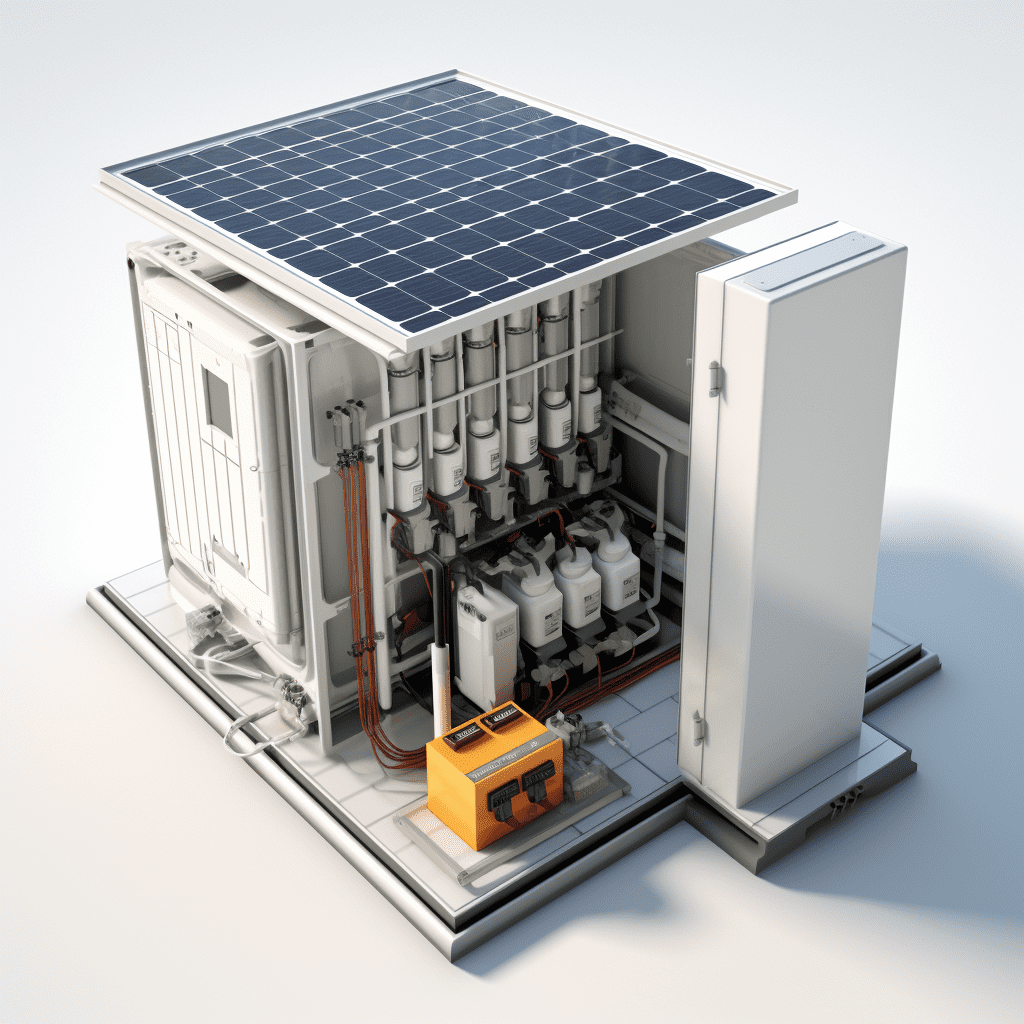Fusing between the battery and inverter in solar panel systems is essential for protecting both components from potential damage caused by overcurrent. Proper fusing ensures safety, enhances system reliability, and prevents costly repairs, making it a critical aspect of any solar installation.
Why is fusing important in solar systems?
Fusing is crucial in solar systems as it protects electrical components from overcurrent conditions that can lead to overheating or failure. By interrupting excessive current flow, fuses prevent potential fires and equipment damage, ensuring the longevity and safety of the entire solar setup.
| Importance of Fusing | Description |
|---|---|
| Overcurrent Protection | Prevents damage to batteries and inverters. |
| Fire Prevention | Reduces risk of electrical fires due to overheating. |
| System Reliability | Ensures consistent performance by avoiding component failure. |
What types of fuses are used in solar panel systems?
Several types of fuses can be used in solar panel systems, including:
- Blade Fuses: Commonly used for low-voltage applications; easy to replace.
- Glass Tube Fuses: Provide reliable protection; available in various ratings.
- Cartridge Fuses: Suitable for higher current applications; robust design.
- Resettable Fuses: Automatically reset after a fault condition is cleared.
How to install a fuse between the battery and inverter?
To install a fuse between the battery and inverter:
- Select the Right Fuse: Choose a fuse rated appropriately for your system’s voltage and current.
- Disconnect Power: Ensure all power sources are turned off before installation.
- Connect Fuse Holder: Attach one end of the fuse holder to the positive terminal of the battery.
- Connect Inverter: Connect the other end of the fuse holder to the positive terminal of the inverter.
- Secure Connections: Ensure all connections are tight and insulated to prevent short circuits.
| Installation Steps | Description |
|---|---|
| Select Fuse | Choose based on system requirements. |
| Disconnect Power | Turn off all power sources before working. |
| Connect Fuse Holder | Attach securely to battery and inverter terminals. |
| Secure Connections | Ensure tightness and insulation on all connections. |
What are the consequences of not using a fuse?
Failing to use a fuse can lead to several serious consequences:
- Equipment Damage: Overcurrent can cause irreversible damage to batteries and inverters.
- Fire Hazards: Excessive heat generated by overcurrent can ignite surrounding materials.
- System Failure: Without protection, components may fail unexpectedly, leading to costly repairs.
What are the recommended fuse ratings for batteries and inverters?
The recommended fuse rating typically depends on the specific battery and inverter specifications:
- For batteries, use a fuse rated at 125% of the maximum continuous current output.
- For inverters, refer to manufacturer specifications; generally, use a fuse rated at 150% of the inverter’s maximum output current.
Buy Wholesale Battery Tips
For businesses looking to purchase wholesale lithium or lead-acid batteries, Redway Battery is an excellent choice due to its extensive experience in OEM orders and custom solutions. To make OEM orders from a reliable manufacturer like Redway Battery:
- Identify your specific requirements (capacity, voltage).
- Contact Redway’s sales team with your specifications.
- Review their proposed solutions and pricing.
- Approve samples before mass production begins.
Industrial News
The demand for enhanced safety measures in renewable energy systems continues to grow as more consumers adopt solar technology. Recent advancements have focused on improving component reliability, including better fusing solutions that protect against electrical faults, ensuring safer installations.
Redway Expert Views
“Implementing proper fusing between batteries and inverters is not just about compliance; it’s about ensuring safety and reliability for users,” states an expert at Redway Battery.
FAQ Section
- Why should I use a fuse between my battery and inverter?
A fuse protects against overcurrent conditions that could damage your equipment or cause fires. - What type of fuse is best for my solar system?
The best type depends on your specific setup; blade fuses are common for low-voltage applications, while cartridge fuses may be better for higher currents. - How do I determine the correct fuse rating?
Fuse ratings should be based on 125% of your battery’s continuous output current or 150% of your inverter’s maximum output current. - What happens if I don’t use a fuse?
Not using a fuse can result in equipment damage, fire hazards, and unexpected system failures.






